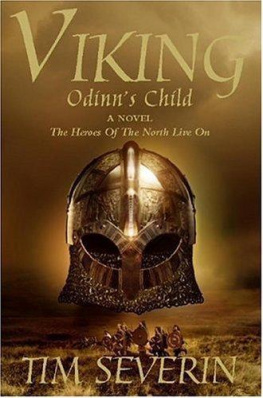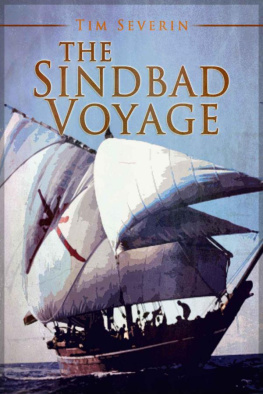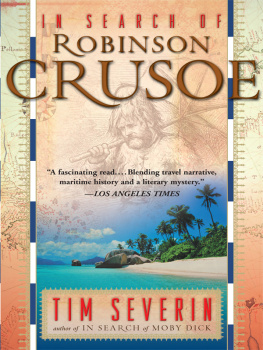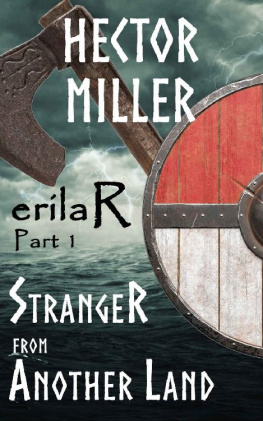Tim Severin - Buccaneer
Here you can read online Tim Severin - Buccaneer full text of the book (entire story) in english for free. Download pdf and epub, get meaning, cover and reviews about this ebook. year: 2011, genre: History. Description of the work, (preface) as well as reviews are available. Best literature library LitArk.com created for fans of good reading and offers a wide selection of genres:
Romance novel
Science fiction
Adventure
Detective
Science
History
Home and family
Prose
Art
Politics
Computer
Non-fiction
Religion
Business
Children
Humor
Choose a favorite category and find really read worthwhile books. Enjoy immersion in the world of imagination, feel the emotions of the characters or learn something new for yourself, make an fascinating discovery.

- Book:Buccaneer
- Author:
- Genre:
- Year:2011
- Rating:5 / 5
- Favourites:Add to favourites
- Your mark:
- 100
- 1
- 2
- 3
- 4
- 5
Buccaneer: summary, description and annotation
We offer to read an annotation, description, summary or preface (depends on what the author of the book "Buccaneer" wrote himself). If you haven't found the necessary information about the book — write in the comments, we will try to find it.
Buccaneer — read online for free the complete book (whole text) full work
Below is the text of the book, divided by pages. System saving the place of the last page read, allows you to conveniently read the book "Buccaneer" online for free, without having to search again every time where you left off. Put a bookmark, and you can go to the page where you finished reading at any time.
Font size:
Interval:
Bookmark:
TIM SEVERIN
Buccaneer
In 1679 the Caribbean was a dangerous and lawless sea. Jamaica, Hispaniola and the arc of islands known as the 'Caribees' were variously claimed by rival nations notably France and England. The opposite shore, the 'Main' or continental coast, was jealously guarded by Spam as the vulnerable frontier of her vast land empire in the Americas. Smuggling was rife. For years the island governments had made up for a lack of men and ships by deploying irregular local forces, which operated as little more than licensed brigands. They had acquired a taste for plunder, and though officially the region was now at peace these soldiers and sailors of fortune were prepared to attack any easy and lucrative target.
ONE
Hector Lynch leaned back and braced himself against the sloop's mast. It was hard to hold the little telescope steady against the rhythmic rolling of the Caribbean swells, and the image in the lens was blurred and wavering. He was trying to identify the flag at the stern of a vessel which had appeared on the horizon at first light, and was now some three miles to windward. But the wind was blowing the stranger's flag sideways, directly towards him, so that it was difficult to see against the bright sunshine sparkling off the waves on a late-December morning. Hector thought he saw a flicker of blue and white and some sort of cross, but he could not be sure.
'What do you make of her?' he asked Dan, offering the spyglass to his companion. He had first met Dan on the Barbary coast two years earlier when both had been incarcerated in the slave barracks of Algiers, and Hector had developed a profound respect for Dan's common sense. The two men were much the same age - Hector was a few months short of his twentieth birthday and they had formed a close friendship.
'No way of telling,' said Dan, ignoring the telescope. A Miskito Indian from the coast of Central America he, like many of his countrymen, had remarkably keen eyesight. 'She has the legs of us. She could be French or English, or maybe from the English colonies to the north. We're too far from the Main for her to be a Spaniard. Perhaps Benjamin can say.'
Hector turned to the third member of their small crew. Benjamin was a Laptot, a freed black slave who had worked in the ports of the West African coast before volunteering to join their vessel for the voyage across the Atlantic and into the Caribbean.
'Any suggestions?' he asked.
Benjamin only shook his head. Hector was unsure what to do. His companions had chosen him to command their little vessel, but this was his first major ocean voyage. Two months ago they had acquired their ship when they had found her stranded halfway up a West African river, her captain and officers dead of fever, and manned only by Benjamin and another Laptot. According to the ship's papers she was the LArc-de-Ciel, registered in La Rochelle, and the broad empty shelves lining her hold indicated that she was a small slave ship which had not yet taken on her human cargo.
Hector wiped the telescope's lens with a strip of clean cotton rag torn from his shirt, and was about to take another look at the stranger's flag, when there was the sound of a cannon shot. The noise carried clearly downwind, and he saw a black puff of gun smoke from the sloop's deck.
'That's to attract our attention. They want to talk with us,' said Benjamin.
Hector stared again at the sloop. It was obvious that she was closing rapidly, and he could see some sort of activity on her stern deck. A small group of men had clustered there.
'We should show them a flag,' Benjamin suggested.
Hector hurried down to the dead captain's cabin. He knew there was a canvas bag tucked away discreetly in a locker behind the bunk. Pulling open the bag, he tipped out its contents on the cabin floor. There were some items of dirty linen and, beneath them, several large rectangles of coloured cloth.
One had a red cross stitched on a white ground, which he recognised as the flag worn by the English ships that had occasionally visited the little Irish fishing port where he had spent his summers as a child. Another as a blue flag with a white cross. In the centre of the cross was a shield bearing three golden fleurs-de-lys. That flag too he recognised. It had flown on the merchant ships of France when he and Dan had been prisoner-oarsmen at the royal galley base in Marseilles. The third flag he did not know. It also displayed a red cross on a white background, but this time the arms of the cross ran diagonally to each corner of the flag, and the edges of the arms of the cross were deliberately ragged. They looked like branches cut from a shrub after the shoots had been trimmed away. It seemed that the deceased captain of L'Arc-de-Ciel had been prepared to fly whichever nation's flag suited the occasion.
Hector returned on deck, all three flags under his arm in an untidy bundle. 'Well, which one is it to be?' he asked. Again he glanced across at the unknown vessel. In the short interval he had been below decks it had come much closer. Well within cannon shot.
'Why not try King Louis's rag,' proposed Jacques Bourdon. In his mid-thirties Jacques was an ex-galerien, a thief condemned to the oar for life by a French court and who had 'GAL' branded on his cheek to prove it. He, together with the second Laptot, made up their five-man crew. 'That way, our colours will agree with our ship's papers,' he added, shading his eyes to scrutinise the approaching sloop. 'Besides ... if you look there, she's flying the French flag as well.'
Hector and his companions waited for the stranger to come closer. They could see someone at her rail waving his arms. He was pointing at their sails and gesturing that they should be lowered. Too late, Hector felt a prickle of suspicion.
'Dan,' he asked quietly, 'any chance that we can get away from her?'
'No chance at all,' Dan answered without hesitation. 'She's a ketch and carries more sail than us. Best heave to and see what they want.'
A moment later Bourdon was helping the two Laptots loose the sheets and lower the sails so that L'Arc-de-Ciel gradually slowed to a halt, and lay gently rocking on the sea.
The approaching ketch altered course to come alongside. There were eight cannon on her single deck. Then, without warning, the little group on her stern deck parted to reveal someone hauling briskly on a halyard. A ball of cloth was being pulled aloft. A puff of wind caught it and the folds of cloth shook out, revealing a new flag. It carried no marks, but was a plain red sheet.
Jacques Bourdon swore. 'Shit! The jolie rouge. We should have guessed.'
Startled, Hector looked at him. 'The jolie rouge,' Bourdon grunted. 'The flag of the flibustiers, how do you call them - privateers? It's their mark. I shared a Paris prison cell with one of them once, and a right stinking bastard he was. Smelled worse than the rest of us gaolbirds all put together. When I complained, he told me that in the Caribees he had once gone two years without a proper wash. Claimed to have dressed in a suit of untreated cattle skins.'
'You mean he was a buccaneer,' Dan corrected him. The Miskito seemed unworried by the sight of the red flag.
'Are they dangerous?' Hector wanted to know.
'Depends what sort of mood they're in,' replied Dan quietly. 'They'll be interested in our cargo, if there's anything they can steal and sell. They'll not harm us if we cooperate.'
There was a clatter and slap of canvas as the strangers' vessel came up into the wind. Her helmsman must have carried out the manoeuvre many times and was obviously an expert for he deftly laid the ketch alongside the smaller L'Arc-de-CieL Hector counted at least forty men aboard, an uncouth assembly of all ages and shapes, most of them heavily bearded and deeply tanned. Many were bare-chested and wore only loose cotton drawers. But others had chosen a ragbag of clothes that ranged from soiled lawn shirts and canvas breeches to seaman's smocks and broadcloth coats with wide skirts and braided cuffs. A few, like Jacques's former cell mate, were dressed in jerkins and leggings of untanned cattle skin. Those who were not bareheaded displayed an equally wide range of hats. There were brightly coloured head cloths, sailor's bonnets, tricornes, leather skull caps, and broad-brimmed hats of a vaguely military style. One man was even sporting a fur hat despite the blazing heat. A few hefted long muskets which, Hector was relieved to observe, were not being pointed at
Next pageFont size:
Interval:
Bookmark:
Similar books «Buccaneer»
Look at similar books to Buccaneer. We have selected literature similar in name and meaning in the hope of providing readers with more options to find new, interesting, not yet read works.
Discussion, reviews of the book Buccaneer and just readers' own opinions. Leave your comments, write what you think about the work, its meaning or the main characters. Specify what exactly you liked and what you didn't like, and why you think so.












